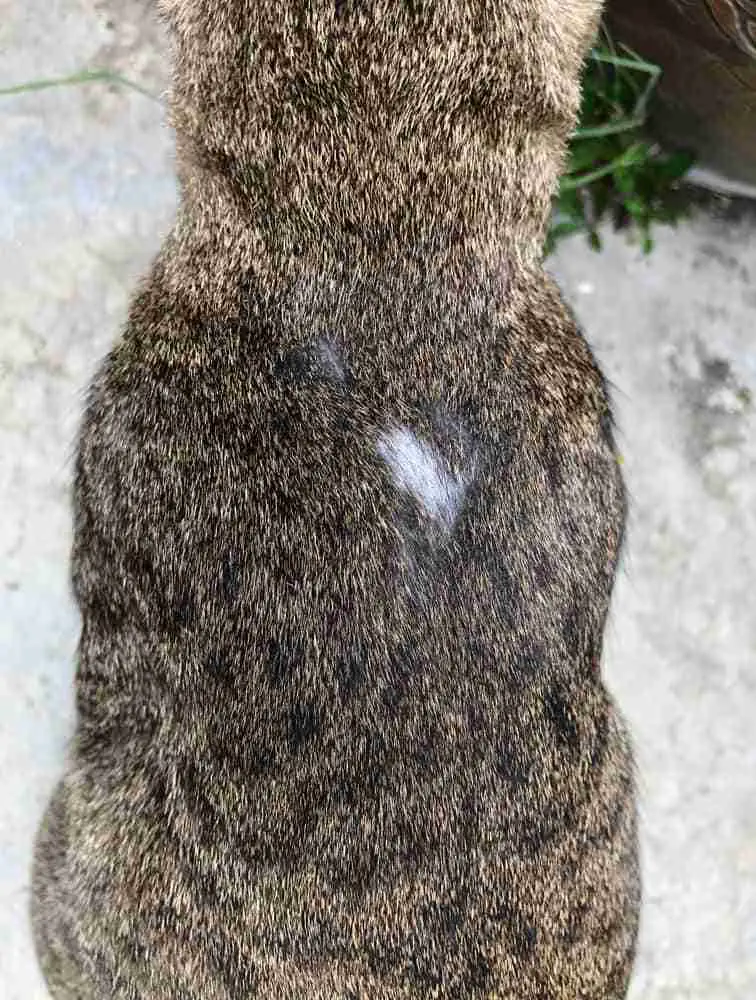Do cats have allergies too? Yes, allergies can be just as common in cats as they are in humans.
If you suspect that your cat might have allergies (or you just want to know more about feline allergies as a cat owner), keep reading.
Feline allergies can range from serious to mild, and might require a vet’s intervention.
Here’s what you should know about allergies, cats, and what to do if your cat displays some of the common allergy symptoms.
Do Cats Have Allergies?
Yes they do.
Allergic reactions happen as the immune system’s response to what it imagines are attackers in the form of allergens. The body flares up the immunity response, and symptoms like irritation, itchiness, and sneezing are common. If your cat has an immune response each time contact with an allergen happens they can be said to have an “allergy” to the particular allergen.
Cats might display allergic reactions to many different things.
What Are The Most Common Allergies In Cats?
Most allergens that affect cats fall into one of three groups: environmental allergens, food allergens or flea allergies.

Common environmental allergens that cause a reaction in your cat might include pollen, grass, plants, mold, dust, some cat litters, fabrics, rubbers, anything with chemicals incorporated that your cat might come into contact with. Basically, if you can be allergic to something in the environment then so can your cat!
Foods that may cause allergies in cats are usually foods that are not natural to a cat – carbohydrates in the form of fruits, vegetables, or cereals, dairy products (cats are lactose intolerant ), foods treated with preservatives and foods tainted with additives, colorings, artificial flavors and the like.
Cat fleas might cause an allergic reaction in your cat where your cat has an immune response after being bitten by fleas.
How Can You Tell If Your Cat Has Allergies?
If a cat appears to sneeze, cough or wheeze at times, it can be a sign of an allergic reaction to something around them.
Other potential signs of an allergic reaction to environmental allergens can include eye irritation, skin irritation or a rash, habitual scratching and sneezing, appearing sleepy or teary eyed or losing patches of fur from over grooming or just unseasonal molting.
Allergic reactions to food usually include symptoms like more gas than usual, vomiting and loose stools or diarrhea. Generally, if your cat seems to have a sensitive stomach this may often relate to a food allergy.
Reactions to fleas usually include excessive grooming leading to fur loss and skin rashes brought on by irritating bites and excessive scratching.
Cat owners should be aware that symptoms are an individual thing. What is true for one cat might not be displayed by another.
Often signs and symptoms of allergies can be confused with symptoms for other serious conditions. If you think your cat has an allergy it is best to confirm with a vet just in case the symptoms are actually something more serious than an allergy! For instance, it can be easy to assume your cat has a food allergy when really the symptoms may be related to a serious parasite problem or even cancer…

Can Cats Be Allergic To Other Cats?
When we say that some people are allergic to cats we are describing a situation where people have an allergic reaction to a protein found in cat saliva. The protein is spread over the cat’s fur and skin during grooming and then comes into contact with people when they touch the cat or come into contact with loose fur or dander from the cat. People with a cat allergy might then suffer from streaming eyes, sneezing or runny nose or all three conditions.
The strange thing is that cats can actually be allergic to each other! It is possible that cats can be hypersensitive to the same protein from a different feline individual and suffer the same allergic response as a person might!
Not only can cats be allergic to each other but they can also be allergic to other pets in the home and other pets such as dogs can be allergic to cats!
A vet may be able to confirm the allergy by blood test if you live in a multi-cat home and suspect one of your cats is suffering.
Can Cats Be Allergic To Their Owners?
Cats aren’t allergic to specific humans.
Cats are more likely to be allergic to the things around their owners instead. Washing powder, perfumes, and even baby powder are some of the things that a sensitive cat might display issues towards.
Shampoo, fabric softener, and fabrics are also some things that might make an owner think that their cat is allergic to them.
See a vet for a full allergy screening. It’s the best way to be sure which factors are triggering your cat’s symptoms!

Can Cats Suffer From Contact Allergies (Or A Rash)?
Even though sneezing and irritation or stomach issues are some of the most common allergy symptoms for humans and cats, a rash is also one of the most important signs a pet owner should look for.
Contact allergies to things like fabric, cleaning products, or the left-behinds of fleas and bed bugs could cause a rash in your cats.
Because cats are covered in fur, a rash isn’t readily spotted unless owners look very (and very) closely. A cat will usually display signs of scratching, biting, or licking at the same spot to the point where it becomes obsessive.
If you see any obsessive or unusual behavior from your cat, it might indicate an allergy – don’t just assume your cat will be sneezing or coughing.
Can Cats Be Allergic To Their Food?
Cats can often be allergic to their food. This will often manifest through the symptoms of a sensitive stomach. They will suffer from symptoms such as excess gas, vomiting, and diarrhea.
Sensitive stomach issues in cats aka allergy to food can come on immediately as soon as a cat eats a new food or can build up over time. It is not unusual for a cat to eat the same food for months before developing a problem – sensitivity to an ingredient develops over time rather than suddenly.
Many cat foods, particularly dry cat foods, include ingredients that cats are simply not evolved to eat such as cereals, pea byproducts, preservatives, etc. They are not toxic to the cat but you wouldn’t find a wild cat eating these ingredients in the wild. Often these are the ingredients in cat food that can stimulate a food allergy to surface.
Can Cats Be Allergic To Litter?
It is perfectly possible for your cat to have an allergy to litter. They may have a contact allergy or an allergic reaction due to dust contacting with their respiratory system.
Litters are made from all sorts of materials including clay, coconut husks, paper, straws, and cereal crop byproducts. Your cat may have an allergy to any of those materials.
If you suspect a cat litter allergy you can simply swap out the litter for a different type and monitor your cat to see if their allergy symptoms clear up. If they do then you can say that your cat is allergic to a type or particular brand of litter.
How Are Allergies In Cats Treated?
Allergies in cats are treated with the introduction of medication (to control the symptoms), and management (to control factors in the environment). See a vet for their recommendations first if you suspect that your cat might be displaying any allergy-related symptoms or unusual behavior.
Do not attempt to treat allergy symptoms at home. A vet’s intervention is always necessary, as there are many other conditions that can cause similar symptoms but be far more serious.
Depending on the specific allergies your cats might have, vets will make individual recommendations on what medication or treatment is best.
Managing Allergies In Cats Better
Allergy treatment with medication can be supplemented with small adaptations to your cat’s care routine.
Groom your cat regularly, and remove trapped fur and dust from any areas or things they frequent like cat beds, favorite chairs, carriers etc.
Consider a change in laundry detergents if you think your cat is affected by detergents.
If your cat has a food allergy a simple change of food or cat food brand can quickly resolve the issue. Read more about sensitive stomachs in cats here.
See your vet for more information on what you can do to control allergies, and which feline-specific medications are best.
